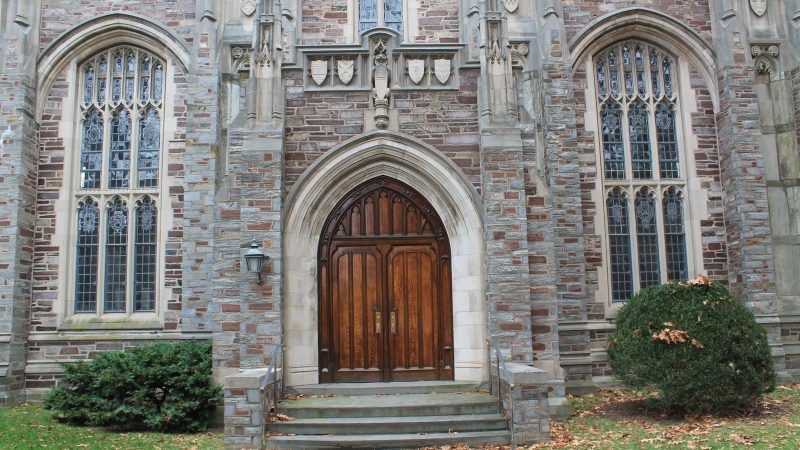Princeton Student Activists Have a List of Title IX Demands That Aren't All Bad
They want restorative justice and facts about disproportionate punishment for students of color

Princeton students have occupied the space in front of Nassau Hall, the campus's administrative building, and are engaged in a round-the-clock protest until university leadership addresses their demands relating to the prevention of sexual misconduct.
Surprisingly, the demands are not all bad.
"In the service of survivors, fix Title IX," activists chanted on Wednesday, the first day of the ongoing protest.
Title IX is the federal statute that outlaws sex-based discrimination on campuses, and was cited by the Obama administration as justification for compelling colleges and universities to take stronger action combat sexual harassment and misconduct. The policies recommended by President Obama's Education Department were unfriendly to the due process rights of accused students, and Education Secretary Betsy DeVos has revised them.
When activists press for Title IX-related changes on campuses, they are typically demanding that authorities adopt a "believe all victims" mentality, which would make it less likely that accused students would receive fair treatment. I've been harshly critical of this kind of activism, in the past.
The Princeton students' demands, though, are not all bad. For one thing, they have asked for the university to devise a restorative justice option for victims who "want to pursue alternative pathways for healing and justice that fall outside the punitive system." If both the accused and the accuser would prefer to reach some other arrangement regarding their dispute, they should be permitted to do so. (Indeed, one of the many reasons DeVos's guidance constituted an improvement is that it allows for such an option.)
The activists have also demanded "full access to statistics relaying the racial and socioeconomic makeup of both alleged and convicted perpetrators. We want to ensure, as a community, perpetrators are being held accountable at the same rate - regardless of socioeconomic and racial background." What they will likely find is that male students of color—and immigrants—are overrepresented among those disciplined under Title IX, consistent with the preliminary evidence gathered at other colleges and universities. It's important to spread awareness of the fact that young men of color are disproportionately harmed when sexual misconduct adjudicators abandon basic principles of fairness.


Show Comments (29)